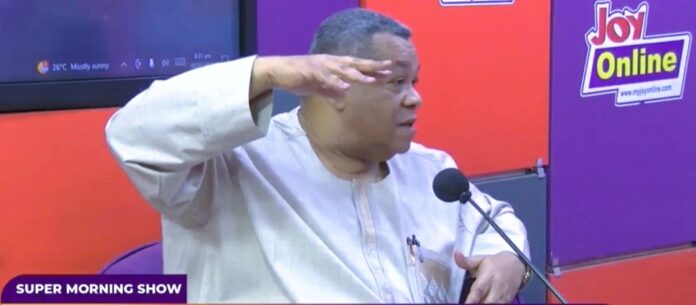Ghana’s ambitious 24-Hour Economy policy is set to transform agricultural mechanisation by promoting local production and creating new business opportunities, according to Mr. Goosie Tanoh, Presidential Advisor on the 24-Hour Economy.
Speaking on Joy FM’s Super Morning Show on July 3, Mr. Tanoh questioned the country’s continued reliance on importing basic farming equipment, urging a shift towards domestic manufacturing.
“Why should we import aboboyaa [tricycles] from anywhere? This is basic technology,” Mr. Tanoh asked rhetorically, extending the critique to disc ploughs and other essential agricultural implements.
He stressed that Ghana has the capacity to produce these tools locally, a capability the 24-Hour Economy policy intends to vigorously support.
A core component of the “Grow Ghana” programme—part of the broader 24-hour economy policy—is focused on “machinery and technology.”
Mr. Tanoh outlined plans to establish a cooperative system that would provide a clear business model for individuals and entities interested in agricultural mechanisation. This system, he said, would allow participants to own tractors and equipment and offer services such as ploughing to farmers at competitive but sustainable rates.
“You’re providing a business opportunity for those who want to do mechanisation support—own tractors and make money from tractors by ploughing for you—maybe one acre for GH¢400,” he explained, noting that service costs would be calibrated to ensure profitability.
He also pointed to Ghana’s existing “soft technology” and fabrication capabilities, particularly in informal industrial zones like Suame Magazine.
“What we’re doing in the fabrication component is to create an industry out of what already exists,” he said, citing the ingenuity of artisans in Suame who routinely carry out complex vehicle repairs and re-engineering.
According to Mr. Tanoh, this local expertise could be harnessed to produce implements such as threshers and combine harvesters tailored to Ghanaian farming conditions.
He also emphasised the need for customised equipment, explaining that many imported tools are unsuitable for local crops like Ghana’s shorter soybean varieties, which require specialised harvesting technologies.
Mr. Tanoh’s comments highlight a strategic move toward localising the agricultural supply chain, fostering mechanisation-related entrepreneurship, and cutting Ghana’s import bill.
This vision is central to the broader objectives of the 24-Hour Economy—to boost productivity, create sustainable jobs, and reduce the country’s dependence on imported goods by promoting continuous economic activity across key sectors.



